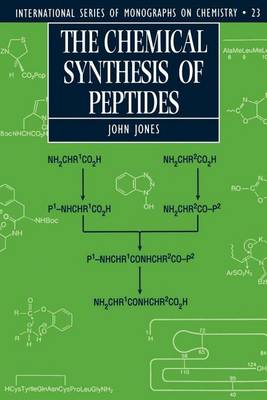International Series of Monographs on Chemistry
1 primary work
Book 23
Peptides have diverse applications and potential in medicine: the regulation of fertility; the control of pain; the stimulation of growth; the therapy of cancer, cardiovascular problems, connective tissue diseases, digestive disorders, mental illness and infections by microbial or viral agents. The preparation of such compounds by manipulating biological systems (genetic engineering) is an increasingly sophisticated art, but each case requires developmental work, and the approach is at present almost powerless with structural types unknown to Nature. Chemical synthesis, on the other hand, is in principle applicable to any target, and is likely to remain very important in the peptide area for the forseeable future. The emphasis throughout this book is on the chemical principles behind the more important methods of peptide synthesis and it provides an updated survey of the field. Case studies are also included.
The term peptide is interpreted liberally, as embracing not only conventional sequences of up to a few dozen proteinogenic amino acids, but also extending to protein-scale molecules and structures comprising other residues or unusual features, for example cyclopeptides and conjugated peptides. The book is aimed principally at the graduate level, especially for those starting in the field, but it should also be of interest to experienced practitioners and advanced undergraduates.
The term peptide is interpreted liberally, as embracing not only conventional sequences of up to a few dozen proteinogenic amino acids, but also extending to protein-scale molecules and structures comprising other residues or unusual features, for example cyclopeptides and conjugated peptides. The book is aimed principally at the graduate level, especially for those starting in the field, but it should also be of interest to experienced practitioners and advanced undergraduates.
